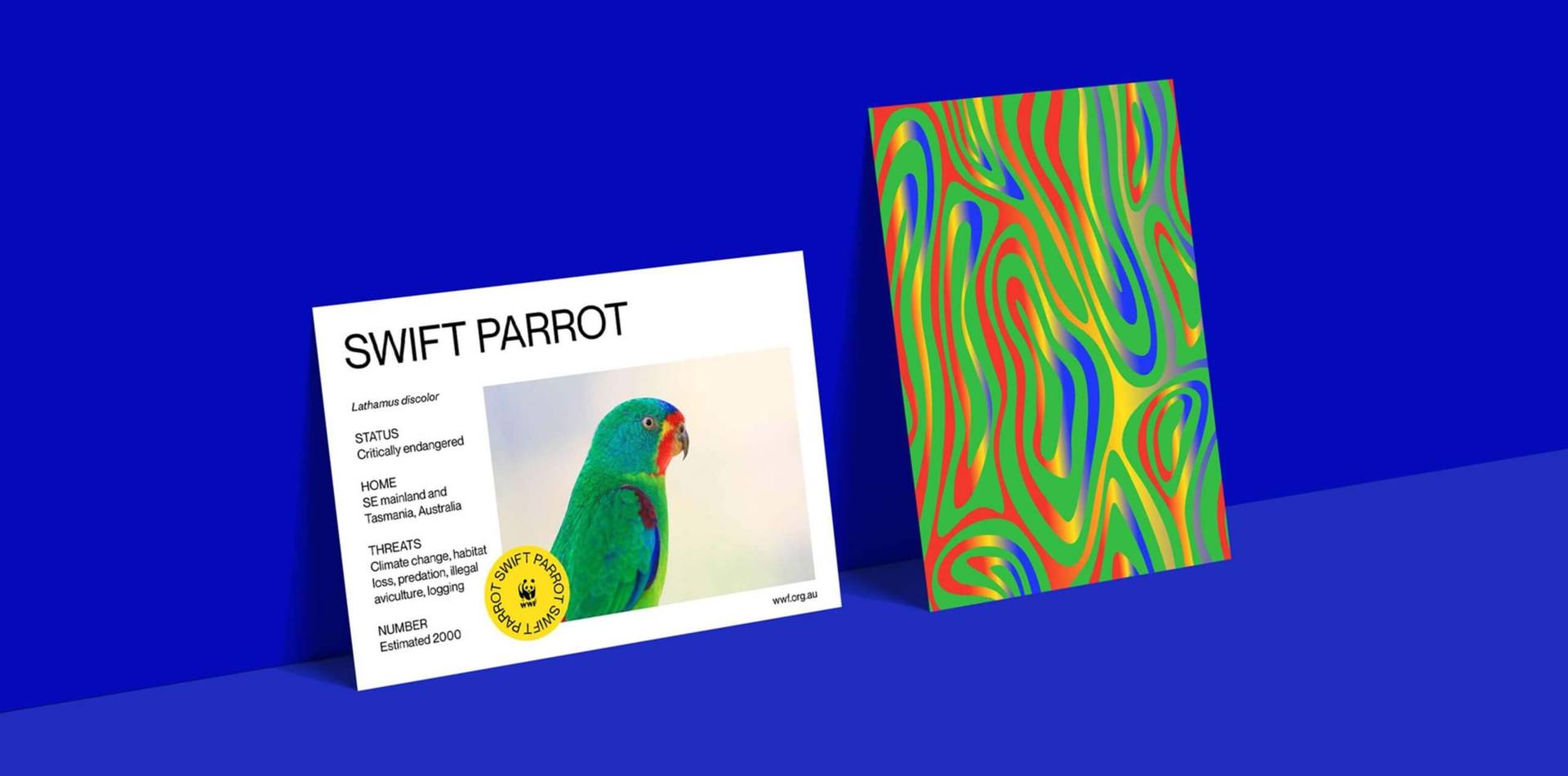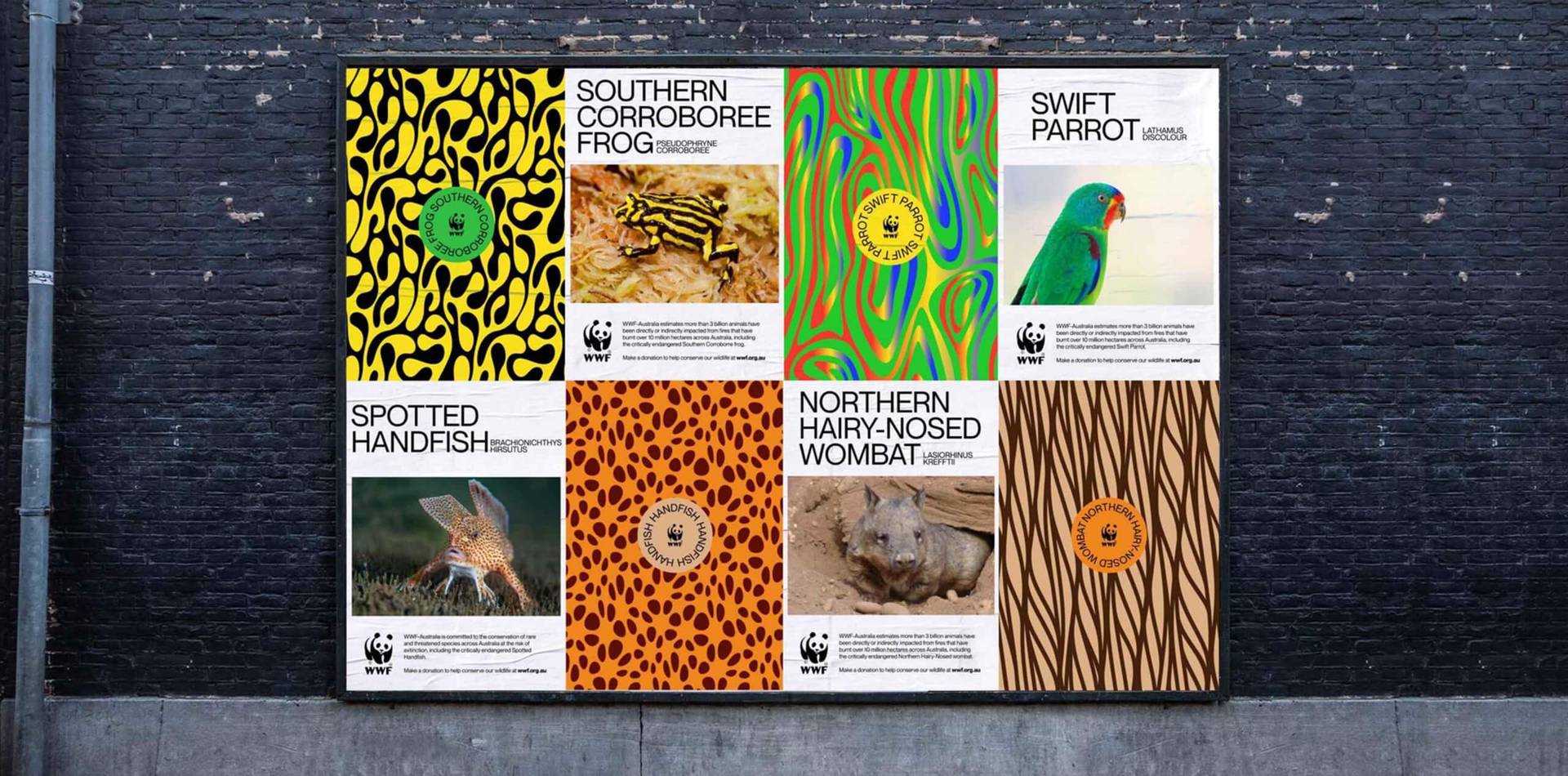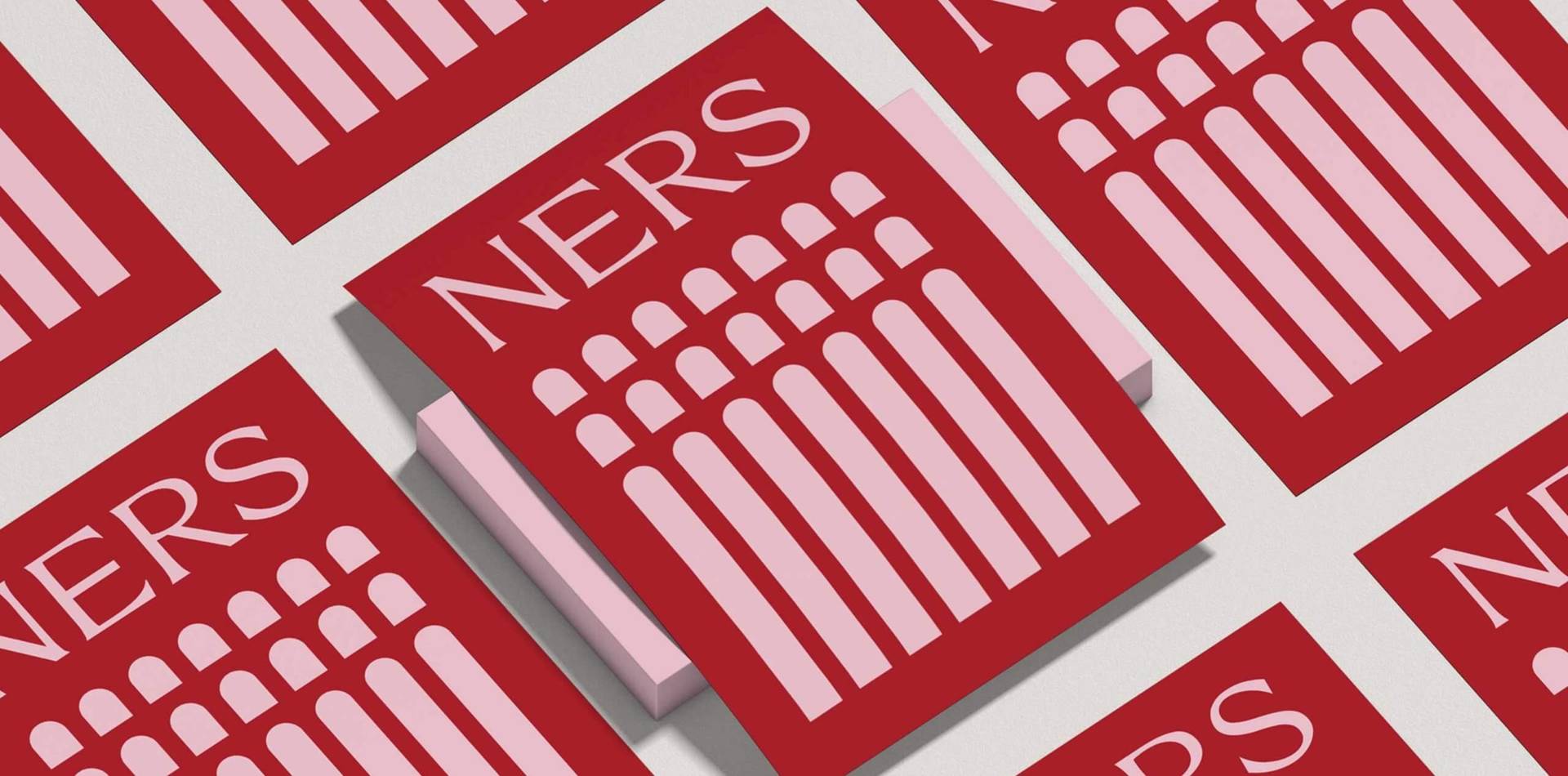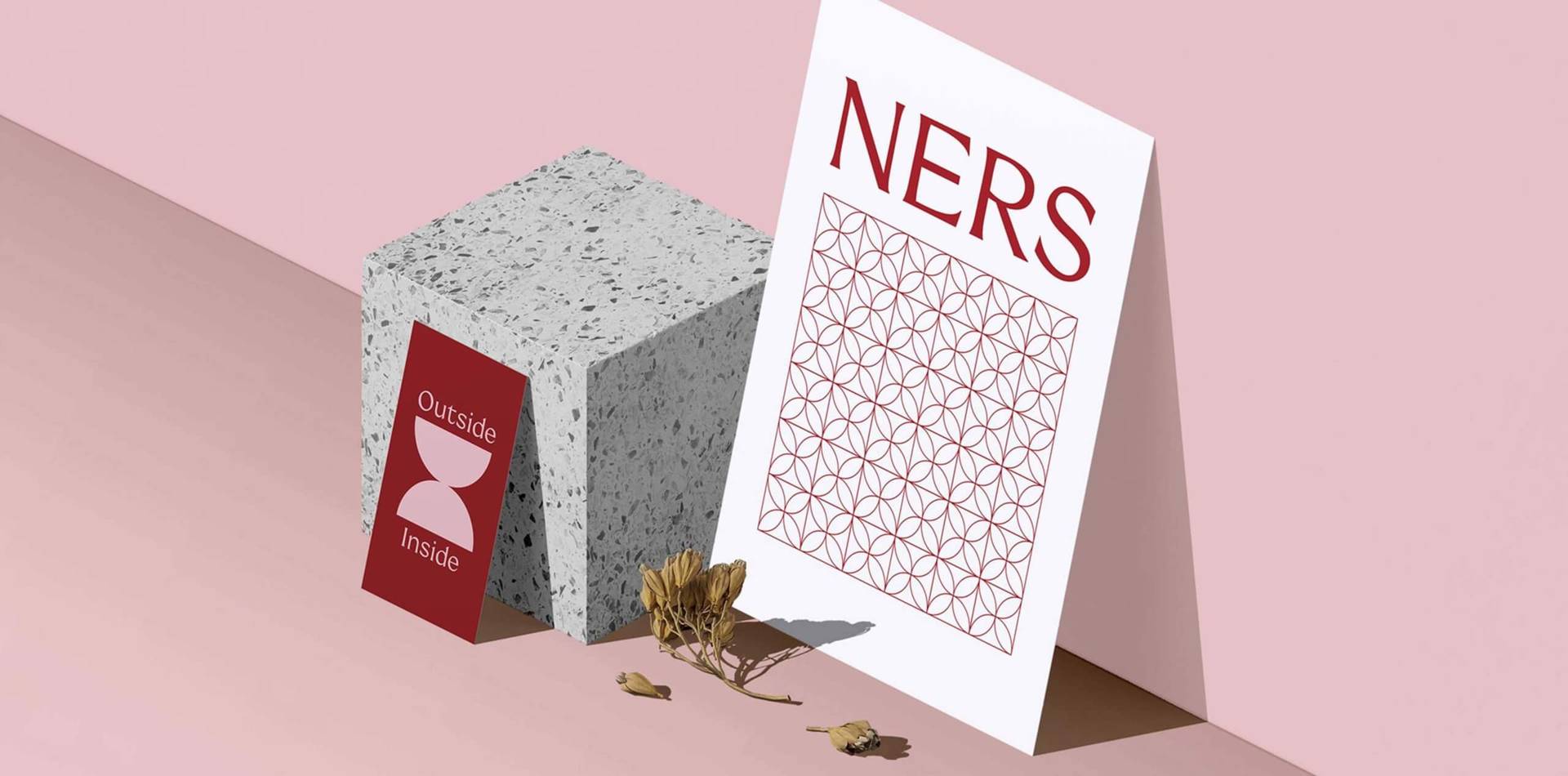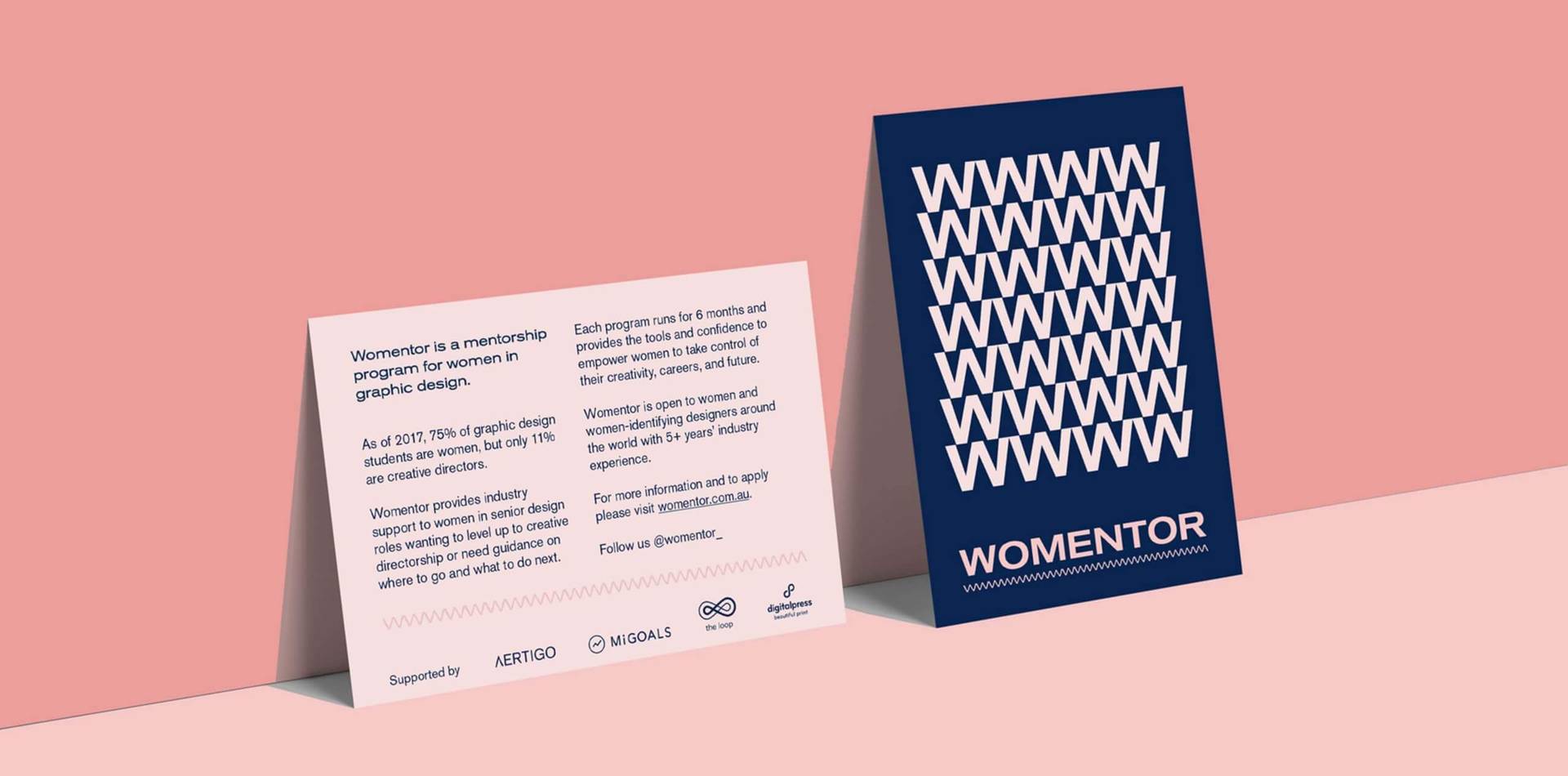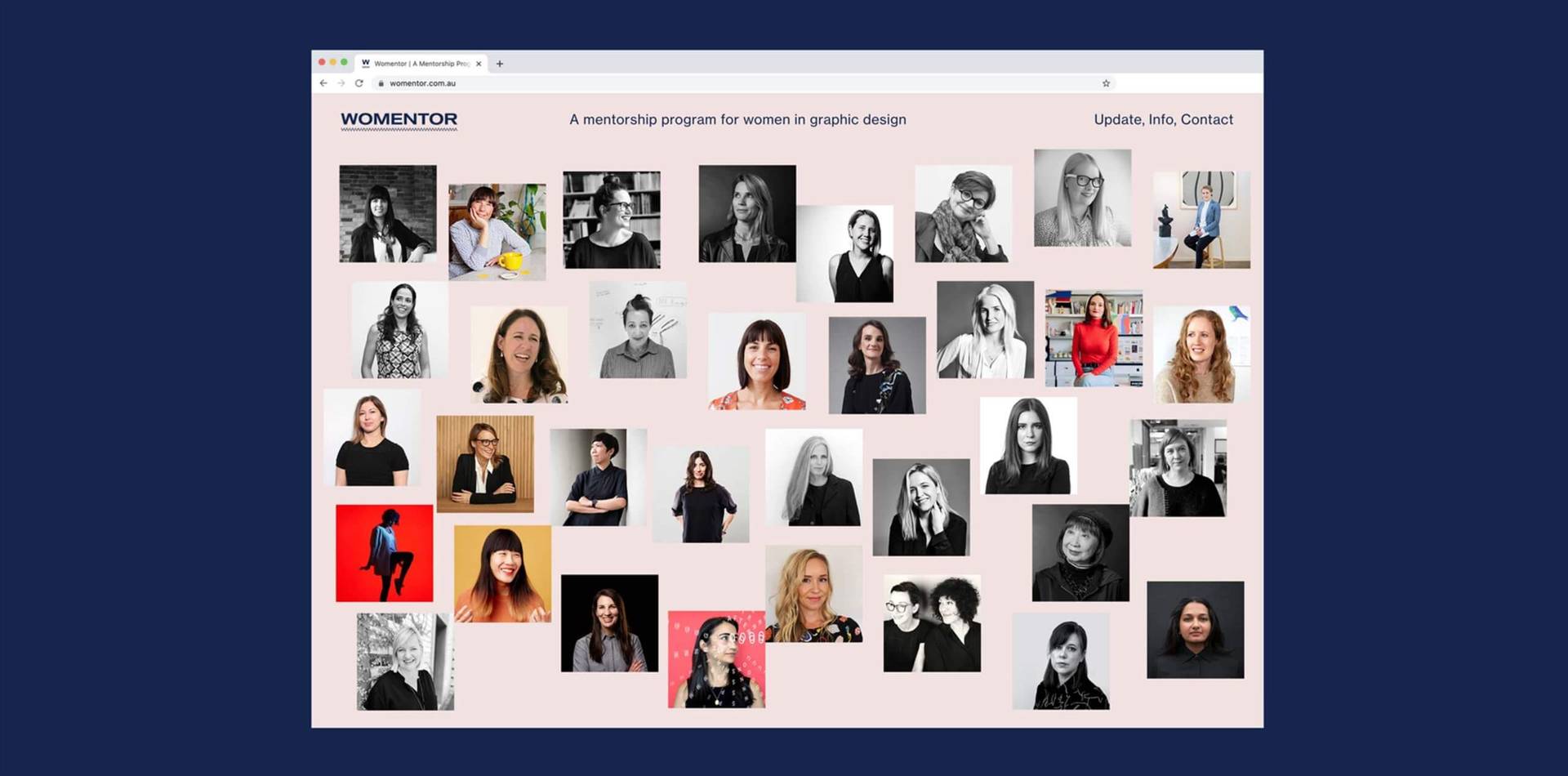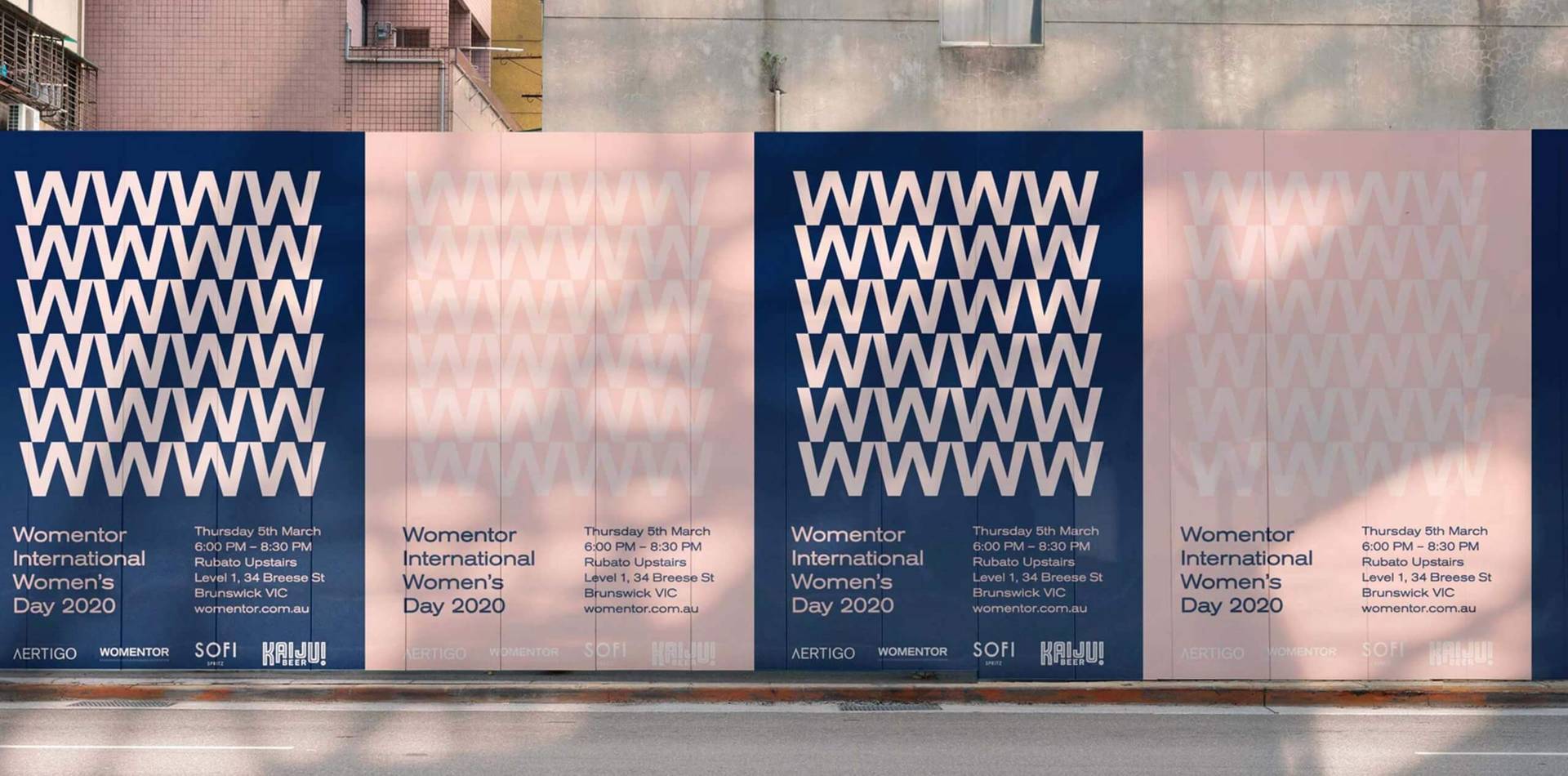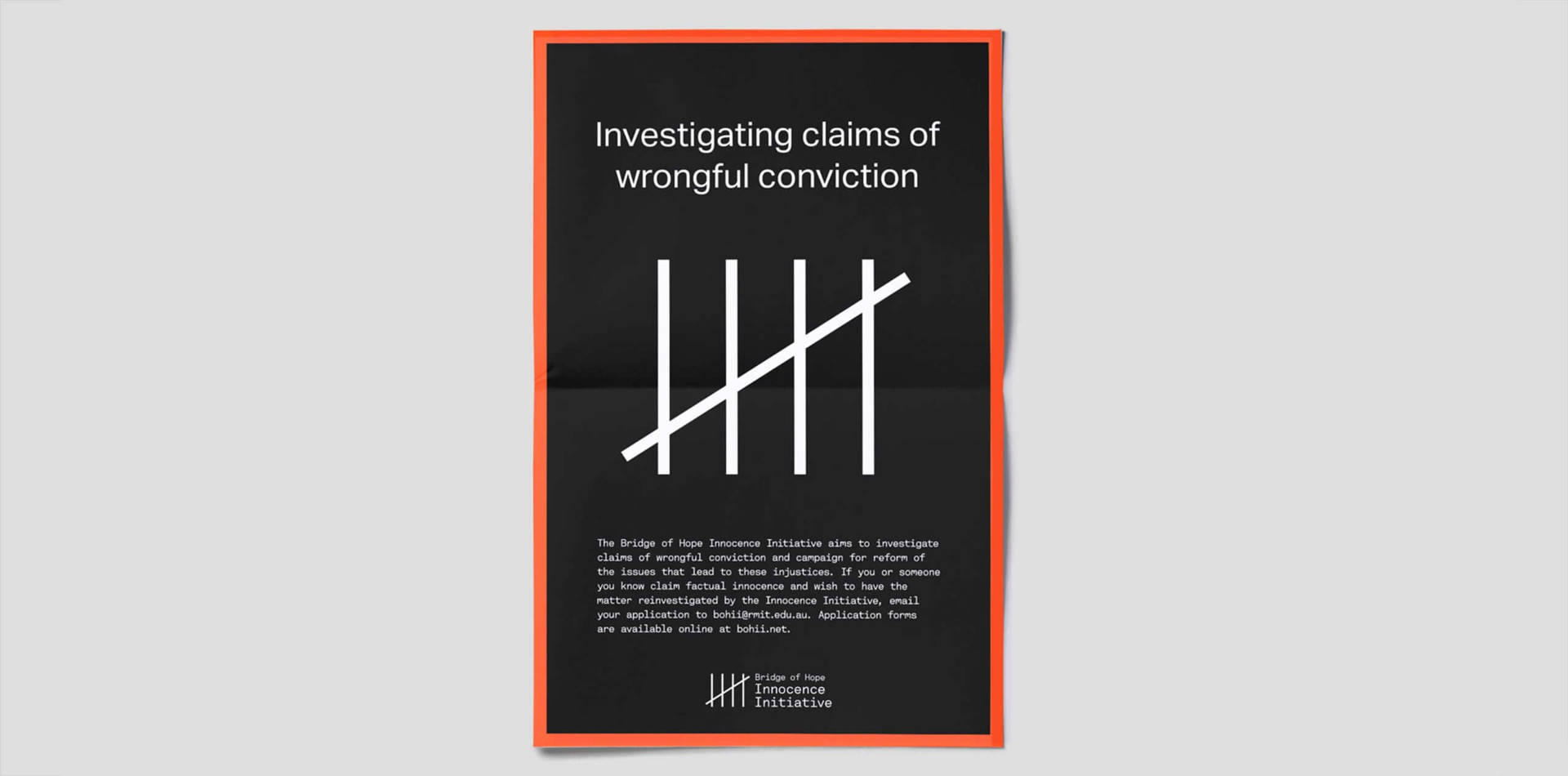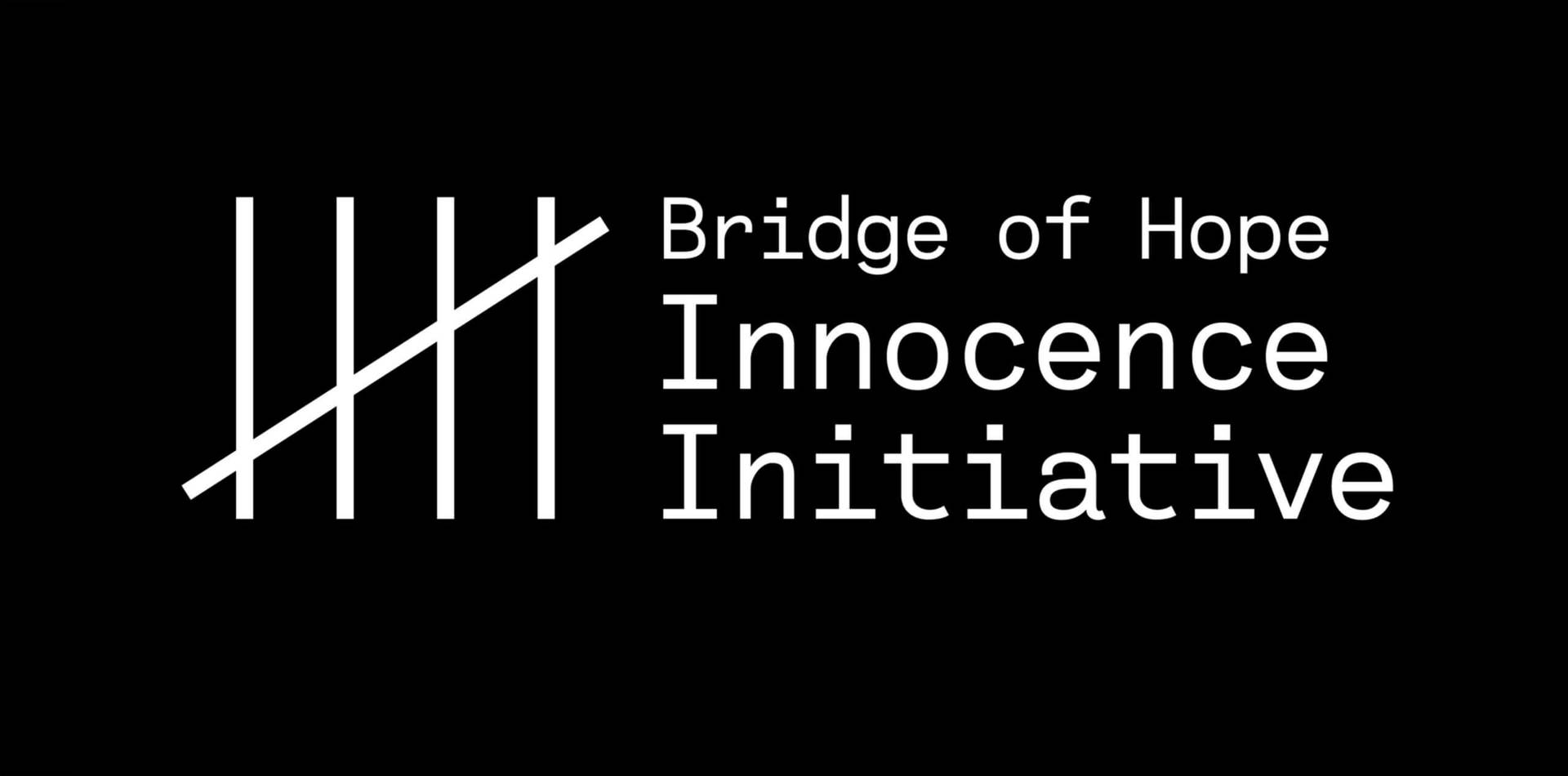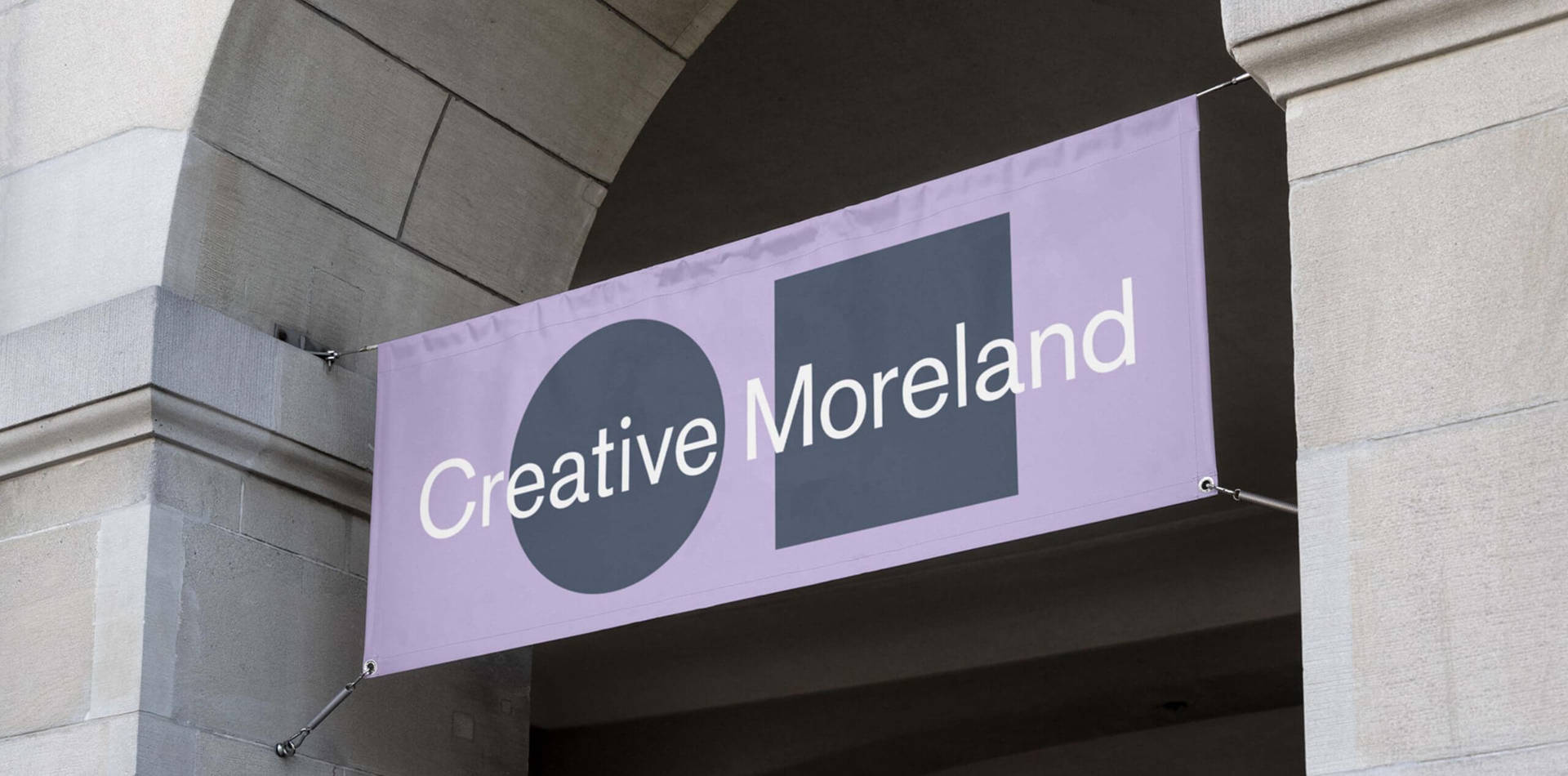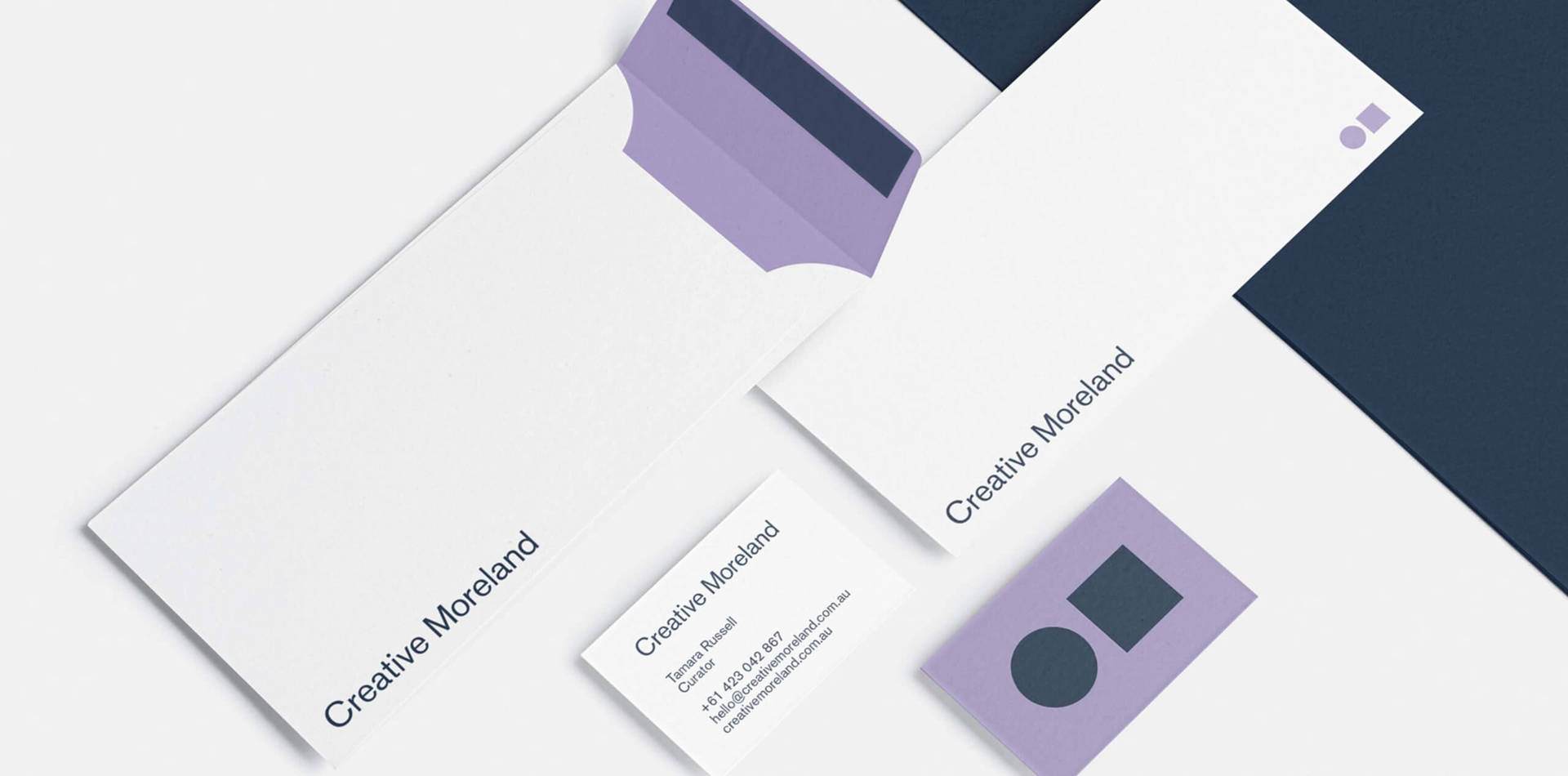Mirella Arapian is an Armenian-Australian designer, founder, and creative director of Mek Studio (previously known as Vertigo). Mirella is passionate about promoting equality and inclusion in the creative industries, which led her to found and become director of Womentor, a global mentorship program for women in graphic design. As a woman in a leadership role, she is a big advocate for the recognition and career advancement of female designers around the world.
Mek is a purpose-driven design studio building future-ready brands with social and environmental impact. They have clear core values of ethics, sustainability, and community. “Our ethos is the driving force of the business” as Mirella tells DbyW: “It determines which industries and spaces we work in, underpins our screening process for new clients, where we donate our time, resources and profits, and how we approach projects in terms of outcome and impact. Mek is our activism.”
Throughout her career Mirella has continuously put her efforts into helping women designers gain the recognition and progression opportunities they deserve. She joined Women of Graphic Design in 2014 as a contributor, was a mentor through the AGDA (Australian Graphic Design Association) Mentorship Programme and in 2018 founded Womentor. Since its launch, the program has transformed the lives of over 40 creative women around the world. They recently celebrated their first mentee being promoted to Creative Director. As Mirella tells us: “It’s such a huge milestone for the initiative because not only does it prove that it works, but it also contributes to improving gender equality in our industry. I know it’s a small step but it’s a start and a sign of bigger things to come.”

We talked with Mirella about how her experiences, background and professional development motivated her to create Womentor, to find out more about the values that guide her in personally and professionally and to ask what advice she has for women working in the creative industries.
What made you decide to start your own design studio and where did the name Mek come from?
I didn’t decide to start a studio. It happened as a result of circumstance! My father who lived in another state was diagnosed with Alzheimer’s and I started travelling back and forth regularly from Melbourne to look after him and my mother. Because of this situation I couldn’t hold down a 9–5 job. It was the catalyst for starting my own business which meant that I could work from home and take time off when I needed to.
After seven years as Vertigo, in 2020 we rebranded as Mek. This change of name was to be more niche, align with our core values and the people and projects we want to work with. Mek is Armenian for one. One people. One planet.
“Mek is Armenian for one. One people. One planet.”
How was the experience of setting up a design studio and what initial challenges did you face?
It was completely daunting, overwhelming. Due to what was happening with my family I wasn’t in the best mental or emotional state to be running a business. But at the time it felt like I didn’t have a choice. I started the studio with no money, no work, no clients, and no connections. All I had was an iMac, my creativity, and a spare bedroom in my apartment. I remember my second client hired me to tutor him in Adobe Illustrator. I didn’t have a studio space he could come to, or a laptop I could take to him, so I suggested we meet at my local library. I carried my iMac and we worked from there. Thinking back on it know it sounds so ridiculous but I’m very proud of how far I’ve come.
What is the ethos behind Mek? How important is this when finding clients and approaching a new project?
- Ethics: We are committed to upholding the highest ethical standards with sensitivity and empathy toward social, cultural, animal, economic, and environmental issues.
- Sustainability: We regularly assess our use of resources, materials, and processes in an effort to minimise impact and not cause unnecessary harm. The studio is located in solar-powered premises, and we recommend only sustainable solutions and materials to clients.
- Community: We believe in giving back and leaving the world better than we found it. Each year Mek donates time, profit, or resources to organisations for important causes.
You joined Women of Graphic Design as a contributor in 2014. What did this role involve and what did you learn from the experience?
Women of Graphic Design is a project focused on exploring issues of gender equality in education provided by design institutions and exhibiting the contributions of women in the field of graphic design. My role involved researching, documenting, and displaying work by female designers around the world to inform, inspire, and encourage discussion. Through this work I learned that countless incredibly talented women were influential in shaping our industry, but they didn’t receive the recognition they deserved. I also learnt that only around 11% of creative directors in the world are women, which confirmed how prevalent gender inequality really is. We have a lot of work to do and a long way to go to achieve equality, but we’re making great progress. I’m endlessly proud of the women in this industry; past, present, and future.
“We have a lot of work to do and a long way to go to achieve equality, but we’re making great progress. I’m endlessly proud of the women in this industry; past, present, and future.”
What experiences in your career to date led you to found ‘Womentor’ and what have you achieved with the platform so far?
When I studied design there were only four women in the school, including the staff. We weren’t taught about women in design history (so, unfortunately [and perhaps naïvely] I didn’t think there were any), and all of the lecturers and guest speakers were men. After I graduated, I completed an internship where I was the only woman in the team. After that, I got my first agency job where I was the only woman in the art department. I had a lot of ideas but none of them were implemented or even heard. I was always left out of conversations, meetings, and client presentations. I felt deflated and invisible, and to be honest if I didn’t have a passion for design, I would have done something else. I didn’t have any ‘design role models’, mentors or anyone I could go to for feedback, advice, or even just a chat. It was so disheartening.
In 2017 I was a mentor in the Australian Graphic Design Association’s (AGDA) Mentorship Programme, a role that I found really rewarding. It was from there – along with the culmination of 20 years of bullshit – that I conceived the idea for Womentor. I started developing it in November 2017 and it launched on International Women’s Day 2018. Since then, the program has transformed the lives of over 40 women around the world, and we celebrated our first mentee being promoted to Creative Director. It’s such a huge milestone for the initiative because not only does it prove that it works, but it also contributes to improving gender equality in our industry. I know it’s a small step but it’s a start and a sign of bigger things to come.
“… the program has transformed the lives of over 40 women around the world, and we celebrated our first mentee being promoted to Creative Director.”
What are your plans for the future of the ‘Womentor’ programme?
Womentor is currently on hiatus due to COVID. We will relaunch it in the near future, when restrictions are fully lifted so participants can meet in person again. Going forward Womentor will have paid mentorships because it takes an epic amount of time, energy, expertise, and resources to run the program which obviously need to be compensated. I want to be able to offer a second tier of mentorships for mentors. In the meantime, we’ve set up a Slack channel that’s open to anyone who wants to join the community to meet new people, ask for feedback and support, share work, or even simply have someone to talk to. I want to give women what I never had.
Are there any women in design (past or present) that you feel particularly inspired by?
Friedl Dicker-Brandeis. Friedl was a student and eventually teacher at the Weimar Bauhaus, working across textiles, printmaking, bookbinding, graphic design, and typography. In 1942 during WWII, she and her husband were deported to the Terezin camp and ghetto, where she gave lectures and taught art. She also arranged secret classes for the children where she helped them understand their environment and emotions through creativity. In 1940 Friedl wrote: “I remember thinking in school how I would grow up and would protect my students from unpleasant impressions, from uncertainty, from scrappy learning… Today only one thing seems important — to rouse the desire towards creative work, to make it a habit, and to teach how to overcome difficulties that are insignificant in comparison with the goal to which you are striving.” In 1944 she was transported to Auschwitz and killed by Nazis one month later. She inspires me because in the face of adversity (and ultimately death) she shared her passion for and gift of creativity with others to help them overcome their fears. I believe that design should always be about more than the design itself; that we should find a bigger purpose and use it to help others.
I’m also inspired by Paula Scher, who moved to New York City with $50 and worked her arse off to become one of the most iconic designers in the industry. I’m always drawn to people who start out with nothing and work tirelessly to achieve success. I think it’s because I’m one too.
How has being a woman and a design studio founder impacted your career?
Being a founder has impacted my career in so many positive ways! I’ve been able to employ others, choose which clients we work with, set my own hours, create projects that make an impact in the world, help shape our industry, and mentor other women, to name a few… While running a studio can be stressful and tiring, it’s also super rewarding. Having the resources and freedom that being a business owner affords is so important to the advancement of women in our industry and society as a whole and shows other women it can be done.
Do you have any words of advice for women creatives just starting a career in the design industry today?
Design is about people. Build your networks and relationships early because you will need them, and never, ever close any doors.
Find your own voice and own who you are, authentically and unapologetically. Be yourself. We need you.
“Find your own voice and own who you are, authentically and unapologetically. Be yourself. We need you.”

